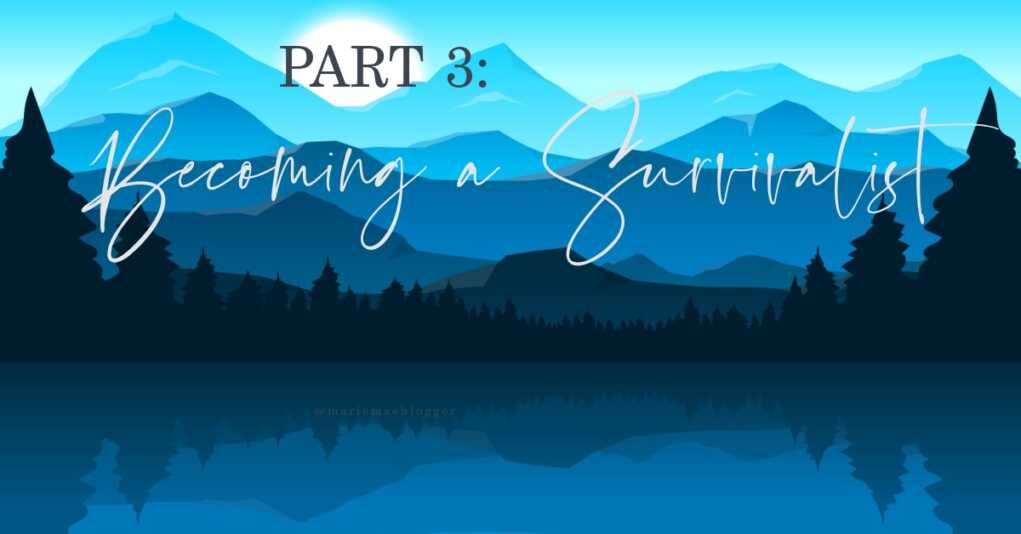Survival Skills Are a Lost Art, Here is Why You Should Learn Them

In an era marked by growing uncertainty, the importance of survival skills cannot be overstated. From potential government instability to looming threats of nuclear fallout, the need to be self-reliant and prepared for adverse situations has never been more crucial. This sentiment resonates strongly with American conservatives, particularly those who identify as survivalists or doomsday preppers, as they understand the value of being ready for anything.
In the aftermath of a disaster, whether natural calamity or a societal collapse, those without survival skills often find themselves at a severe disadvantage. Without the knowledge to procure food, purify water, or construct shelter, they rely on dwindling supplies or external assistance, which may be scarce or unavailable. Moreover, the psychological toll of suddenly facing adversity can overwhelm individuals who lack the resilience and adaptability that survival skills cultivate.
One of the core reasons why survival skills are essential is their role in fostering self-reliance. Fending for oneself in challenging circumstances is a valuable asset in a world where many rely heavily on modern conveniences and technology.
Mastering survival skills is not just about practicality but personal growth. The challenges of learning and practicing survival techniques instill qualities like resilience, adaptability, and perseverance. These traits are beneficial in survival scenarios and translate to everyday life, helping individuals navigate obstacles with confidence and determination.
Survivalists often emphasize the transformative nature of acquiring these skills, especially for young people. The process involves stepping out of one’s comfort zone, confronting adversity, and developing a deeper understanding of oneself and the world. This experiential learning can be profoundly impactful, shaping individuals into more capable, self-aware, and compassionate.
Another critical aspect of survival skills is their capacity to instigate a reconnection with nature. In a hyper-connected digital age, where screens dominate our attention, the ability to disconnect and immerse oneself in the natural environment is increasingly valuable. It offers a chance to rediscover primal instincts, appreciate the beauty of the wilderness, and gain a newfound respect for the Earth’s resources.
While some may stereotype survivalists as extreme or overly cautious, their mindset aligns with core American values of self-sufficiency, preparedness, and resilience. Survival skills provide a tangible and practical means to face these uncertainties head-on.
Since we can’t all be Boy Scouts and Girl Scouts, there are a few skills that you should focus on to add to your prepping arsenal.
Foraging: Embracing Nature’s Bounty
In a world where uncertainty seems to be the new normal, the ability to forage for food is a crucial survival skill. Imagine a scenario where supermarkets are no longer an option. Learning how to identify edible plants and sources of sustenance in your surroundings can be a lifesaver. Not only does foraging provide sustenance, but it also connects us with nature and teaches self-reliance.
Access to a book like “The Foldable Forager” is a must-have tool for anyone looking to master the art of foraging. This compact survival kit provides essential information and peace of mind in emergencies or disasters. Detailed images of plants and mushrooms enhance your foraging skills and ensure accurate identification of safe, edible wild foods.
Growing Your Own Medicine: Empowering Self-Sufficiency
Another vital skill for survivalists is cultivating medicinal plants. With the rising costs of healthcare and potential disruptions in medical supplies during crises, growing one’s own medicine can be invaluable. Whether it’s herbs for common ailments or plants with healing properties, having a medicinal garden ensures self-sufficiency in healthcare.
“Backyard Pharmacy: Plants as Medicine” is a great guide for transforming common plants into powerful healing remedies. You’ll discover that plants you once considered mere kitchen seasonings or home scents hold incredible healing properties. With easy-to-follow instructions, this guide helps you create herbal remedies for everyday ailments.
Learn how to grow, harvest, prepare, and utilize healing plants to naturally make tinctures, oils, and creams that promote wellness.
Firearms and Ammunition: Protecting What’s Yours
In times of potential chaos or social unrest, knowing how to handle firearms responsibly and ensuring a sustainable supply of ammunition is crucial. For many conservatives, the Second Amendment represents a right and a responsibility to protect themselves and their families. Proper firearm use and maintenance training is essential for maintaining security in uncertain times.
“The Firearms Survival Guide” is a valuable resource for understanding the importance of ammunition independence in survival scenarios. This paperback book is essential for anyone seeking to master firearms skills and ensure self-reliance in challenging situations. It emphasizes the critical nature of having a sustainable supply of ammunition, especially during emergencies or periods of societal upheaval.
Living Off the Grid: Embracing Independence
Many people are drawn to living independently, away from relying too much on public utilities. The book “Overnight Home Energy” shares helpful tips on becoming more self-sufficient with your electricity needs. Using renewable energy sources like solar or wind power can lower your dependence on traditional power systems, save money, and have more control over your energy usage.
The book suggests ways to cut your electricity bills by as much as 50% in the first month, which is quite impressive. Imagine saving around $800 every year! You could use that extra money to pay off debts, plan family trips, or invest in your education. Managing your energy consumption aligns with being self-reliant and ready for unexpected situations.
When you compare sticking with centralized utilities versus going for energy independence, the advantages of self-sufficiency become clear. With electricity costs increasing and the possibility of natural disasters or power grid issues, self-sufficiency isn’t just a preference anymore—it’s becoming necessary. Learning about sustainable energy and practical solutions can help you protect your home, finances, and overall well-being from outside disruptions.
Remember this: the path to resilience starts with you. With these essential survivalist skills in your arsenal, you’re not just surviving—you’re thriving.

